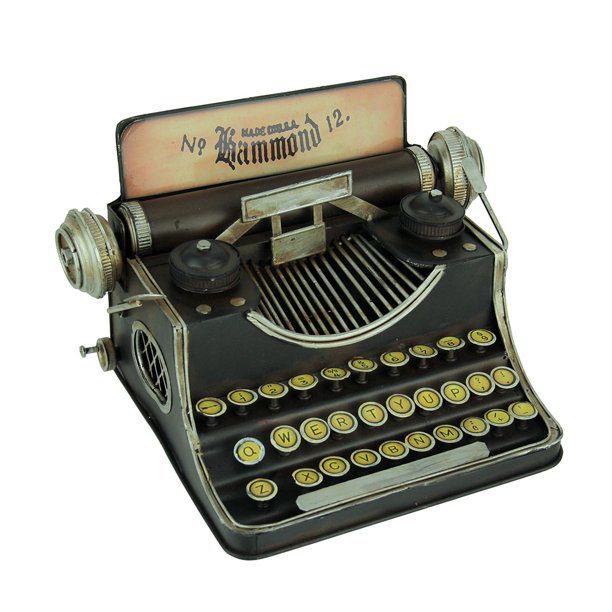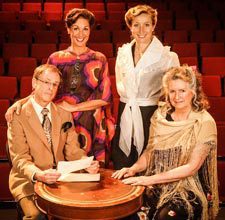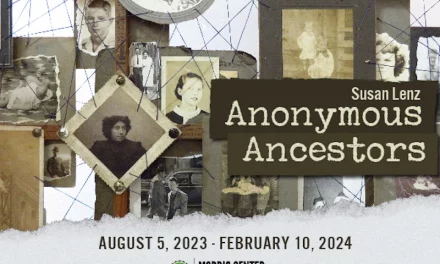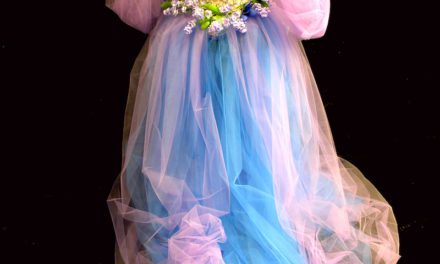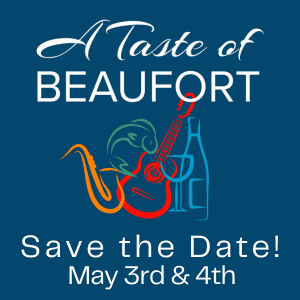 Lowcountry Weekly is pleased to announce the winners of the 7th Annual Sea Island Spirit Writers Short Story Contest. Participation this year was higher than ever before, and entries came in from all over the country! The writers were charged with using the phrase “a sign” somewhere in their story of 750 words or less. There were so many great stories, we’re glad the Sea Island Spirit Writers served as judges, not us!
Lowcountry Weekly is pleased to announce the winners of the 7th Annual Sea Island Spirit Writers Short Story Contest. Participation this year was higher than ever before, and entries came in from all over the country! The writers were charged with using the phrase “a sign” somewhere in their story of 750 words or less. There were so many great stories, we’re glad the Sea Island Spirit Writers served as judges, not us!
Thanks to everybody who entered a short story this year, and congratulations to the winners! Please enjoy their stories below this announcement.
1ST PLACE, $100
The Messenger
by S.L. Weikel (aka Sandra Miller), Columbus, NC
2ND PLACE, $50
The Culmination of Their Journey
by JJ White, Merritt Island, FL
3RD PLACE, $25
Judge Not Lest Ye Be Judged
by Mare Deckard, Port Royal, SC
HONORABLE MENTIONS, $20
An Irish Love Story
by Tom Bixby, Palm Desert, CA
Mistakes Were Made
by Tim Ruth, Chaffee, NY
Peaches
by Shannon Keyes, Hilton Head, SC
THE WINNING STORIES
FIRST PLACE
The Messenger
By S.L. Weikel (aka Sandra Miller)
She drops slowly to her knees, clearing a spot in the sand with her cane. Stretching out on the soft, cool cushion of dunes she feels surprisingly at peace. She is tired. The last month was difficult, more difficult even than when her world first went dark. Only fifteen months ago? It seemed forever. She has learned to live with memories – memories of the number of steps from her house to the boardwalk, the number of steps up and down the boardwalk and from the boardwalk to the spot where she lies in the sand, listening to small waves softly lapping the shoreline, smelling the salt air, and hearing the fluttering wings of birds heading to nesting grounds on Hunting Island. She lies quietly on the dunes and waits for what comes next.
Her mind drifts back to her last view of an azure sky, the morning sun shining through giant oaks draped in Spanish moss, the red coat of the master of the hounds and the pack racing across the field. Her heart racing in time with the rhythmic gallop of her horse and then, without warning, nothing. She is in a hospital bed, trying to open her eyes, and realizing they are open – to total blackness. Her world marked by perpetual night without the slightest glimmer of light. Optic nerve damage they said – from the tumble she took when her horse reared at a seemingly harmless black snake. How could she have let that happen? For days and weeks, she searched her mind’s eye trying to recreate those fateful moments but the memories eluded her and she finally gave up. Burned into her memory were the words of the neurologist: “You might regain your sight, we won’t know until eighteen months or so . . . nerves can create new pathways to send messages to the brain . . . if it happens, it happens slowly . . . you may see lights and shadows first. . . that will be a sign . . .”
She had been waiting fifteen months for a sign and trying to adjust – just in case. She gave her high heels to charity, retired early and moved to Harbor Island. She walked the beach without fear of being run over by passing cars or risking the imagined pitying stares of shoppers in downtown Beaufort. Her sister called periodically to fuss – telling her she was a recluse. She didn’t care. Her little world was safe for now.
Three months more – then what? Would she find a way to keep going forever in darkness or would she simply choose a day to lie down in the sand, and let the tide carry her slowly and gently into the sea? Closing her silent eyes, she falls asleep imagining herself shrouded in eternal nothingness at the ocean’s bottom.
She is awakened by a soft scraping sound – something heavy dragging through the sand – coming closer ever so slowly. “Who’s there?” she whispers. No response. Frightened, she sits up reaching frantically for her cane but instead grabbing something that feels like a large leather mitt. Groping the air wildly, her hand comes back to earth landing on a hard, wet slow moving mound. She realizes she is sharing her resting spot with a mother loggerhead lumbering to the shore to lay her eggs. She smiles, the first time in a long time, and gently strokes its back. The turtle rests a moment beside her and then resumes trudging toward the dunes. She sits quietly waiting until she is sure her friend is far enough away to deposit eggs undisturbed.
Using her cane for support, she slowly rises to her feet. She thinks about her friend depositing hundreds of eggs with only a few babies growing up to return – terrible odds. What did the doctor say? A 30-40% chance of regaining her sight? She smiles again, sending a silent thank you to her friend for reminding her that her own odds are really not so bad.
She heads back to the boardwalk, carefully counting her steps. She pauses, turning her head toward the ocean to bid a silent farewell to her turtle friend laboriously trudging back towards the surf; all missions complete. The turtle stops momentarily in acknowledgment and trudges onward. For reasons she was not meant to understand, she feels compelled to lift her eyes to the sky. A crescent moon appears – a faint, blurry gift illuminating the blackness of her night.
SECOND PLACE
The Culmination of Their Journey
By J.J. White
I come up from steerage to see the swells gently rocking our ship like a new mother her child.
I lived near the water all my life, Lislarkin not a stone’s throw to the sea, you can be sure of that, but close enough. From a boy, I’d fall asleep to the seductive sea crashing against both rocky crags and the bones of ships navigated to their end by rum-filled captains, the waves never ceasing, clamoring to the culmination of their journey.
Our voyage has been a tempestuous one, perhaps half of us gone or dying from diseases we can’t pronounce, let alone tell you what they are. Once a day they shove us topside to bathe in saltwater, the free passage from our British landlords and our dreams of America, less enticing as the crew heave more and more of the dead off the stern.
And so I relish my hour topside, not to escape death but to enjoy God’s loving and creative hand, to embrace the expanse while He is in a pleasant mood, to share the sensuous touch of the sea with someone. Even the dying.
The man near me seems a taciturn fellow who shares a “Good Morning” and then goes back to staring out over the bow like a gannet eyeing a fish. He sits on the gunwale ahold of the standing rigging, knuckles white as his face.
I say, “’Tis odd to find such a calm day on the mighty sea, though perhaps a sign of good weather to come, don’t you think, sir? Look at that, will you, a rare set of swells. Can you imagine they were once a part of a mighty storm that brought its own kind of doom to far-away ships? Of course their holds would be filled with fish, not bodies like our fair boat. Look at them.”
I can’t tell if he does or not, so I continue. “See how they roll towards us traveling across the sea after skirting great masses of land.” As if to make my point, our ship rocks gently, the swells lulling our living and our dead. “My mother would say that when the angels calmed the sea, you could hear music on each wave. My Annie believed it, too, she did. Do you have a girl of your own, sir?”
He doesn’t answer, so on I go. “Annie loved the sea near as much as I do, many a day she’d come home late from a long walk to the Cliffs of Moher. ‘Liam,’ she’d say, ‘you should have seen this one breaker wearing its white face far from shore. I swear it moved a boulder the size of a house, it did, and then fell back where it was a second before.’ She had a lovely way of exaggerating, that one did. I’d hold her until dusk, the smell of the sea in her hair.”
The gent keeps his stare on the sea without a blink.
“I thought she’d always be that way, so full of everything about her, and it seemed she would be, until we lost Sean and Pádraig. You see, the children go first when the crop spoils. Why is that, sir? Why do you suppose He takes the ones with the most to live for? God rest their souls.”
I weep as I say this to my new friend and I expect him to give me something for my sorrow, a compassionate nod or shrug, but no, nothing. I slow my words. “There wasn’t much after that. The landlord knew he’d be better off without tenants who pay no rent, and so his last and only gesture of kindness was to pay passage for this fine coffin-ship.
“My Annie took one more walk to the Cliffs before our great journey to America. I was hoping she smiled when she stepped off that grassy ledge, and I was hoping I was on her mind in those last seconds. She was the one, I knew from the moment I met the lovely girl. I miss her the most, God help me. I loved my boys, but I miss her the most.”
By this time I’m talking to the air, I am, because my friend is gone. I see him out the corner of my eye, floating on another rare set of swells. In a few days they’ll crash on some exotic shore, spent from their wondrous journey. Perhaps they’ll take his soul with them.
THIRD PLACE
“Judge Not, Lest Ye Be Judged”
By Mare Deckard
The exchange in the motel parking lot went smoothly; he hoisted the suitcase into his trunk, making sure the latch caught. Exiting the parking area, he turned left toward the turnpike; soon he would be home. Only then, at his leisure, would he open the bag and caress the crisp bills before securing them in a concealed safe.
The drive home, with the moon illuminated in a blanket of stars, invited a rare moment of reflection for him. How different the weather that first night. He had arrived at the agreed upon location, edgy with fear, when lightening suddenly flashed across the sky, a precursor to a violent thunderstorm. It must be a sign he thought, a portent he would be apprehended any moment. When his contact pulled up, he grabbed the outstretched bag and ran to his car, nearly slipping on the puddles of water pockmarking the cracked asphalt. Heading home, a police cruiser flashed its lights. Panicked, he gripped the steering wheel, rivulets of water from his rain flattened hair almost obscuring his vision. He willed himself to appear calm and the cruiser sped by, their target a battered station wagon brimming with excited teens. With the danger passed, he made it back home safely. Eventually, the tension of that first encounter faded and the rendezvous became routine. Now he might even engage in the occasional cigarette or brief small talk. But he would only meet at night and he always obscured his appearance, just in case. After all, prison would be hellish, especially for his kind.
Turning off the freeway, taking care not to exceed the speed limit, he approached the winding lane of his neighborhood, a leafy boulevard of gracious town homes sprinkled among vintage Craftsman cottages. Pulling into his driveway he eased the vehicle into the garage, automatically activating the door closure. It would hardly do for inquisitive neighbors to question his comings and goings.
Removing the bag from the trunk, he entered the house through the breezeway and headed straight to his study. Placing the suitcase on the desk he slowly pushed the zipper open. The familiar smell of sudsy cloth infused with musk permeated the room. Inhaling, he counted the bills slowly and meticulously until satisfied they had not shorted him. He made his way to the basement safe and deposited the cash. Ascending the stairs to his bedroom, he reminded himself the morning’s schedule would likely bring new and ever more promising opportunities for self-enrichment.
The piercing sound of the alarm clock awakened him from a dead sleep. He showered, then dressed in modest attire. He preferred to wear one of his impeccable custom suits but knew it unwise to flaunt his secret wealth. He poured coffee into a travel container and entered the garage, holding the mug steady. He backed the car out and drove the familiar roadways toward downtown, mulling the opportunities that awaited him, never knowing for certain until he took a moment to “read the room.” As he headed into the city’s business center, he saw a cluster of utility trucks clogging the main thoroughfare, causing him to detour through a labyrinth of side streets. Arriving at his destination, he swung the car into an open parking space and glanced at his watch, irritated he was running behind. He hurried into the stately building, making his way briskly down a paneled hallway to a side corridor, traversing a maze of cubicles adjacent to imposing double oak doors, one partially ajar. Stopping before a familiar desk, he heard a voice boom from within, “Please rise,” while a clerk said to him: “Your robe, your Honor.”

